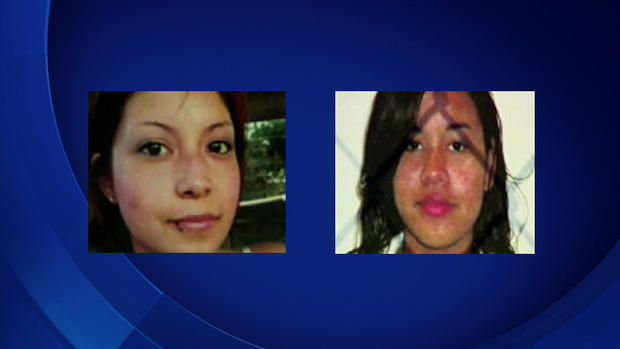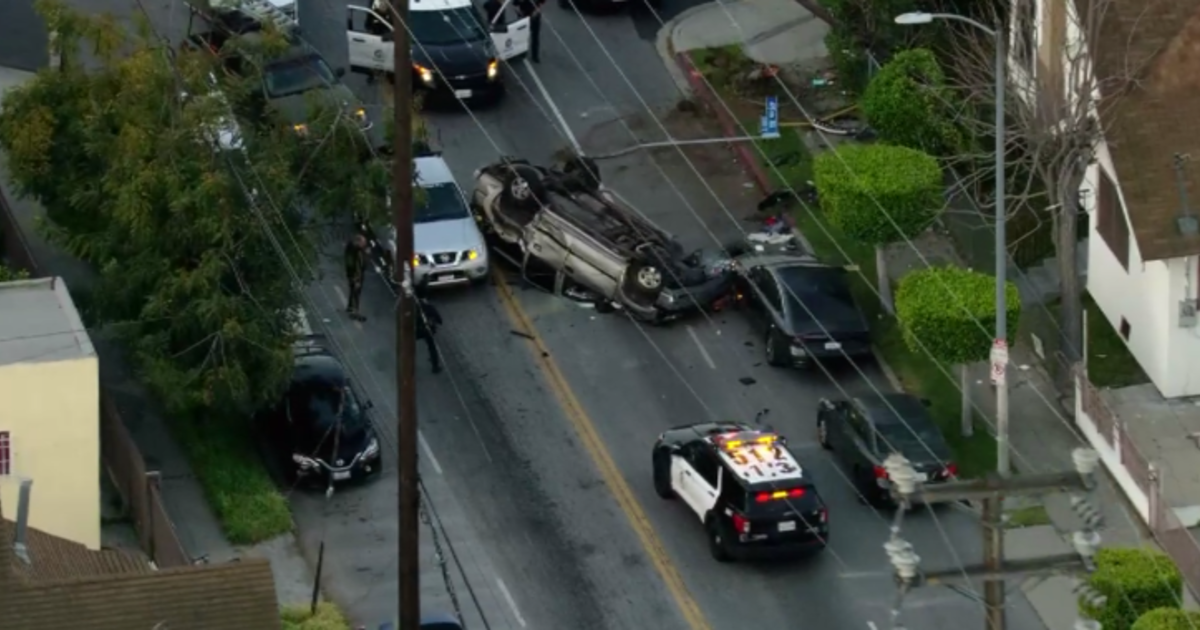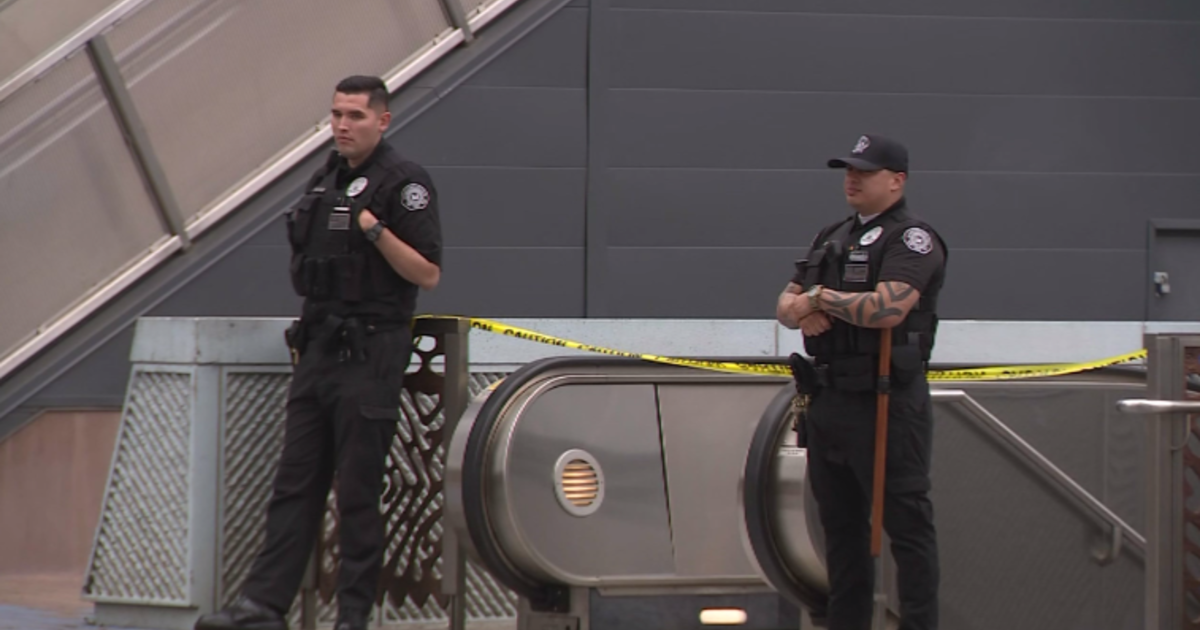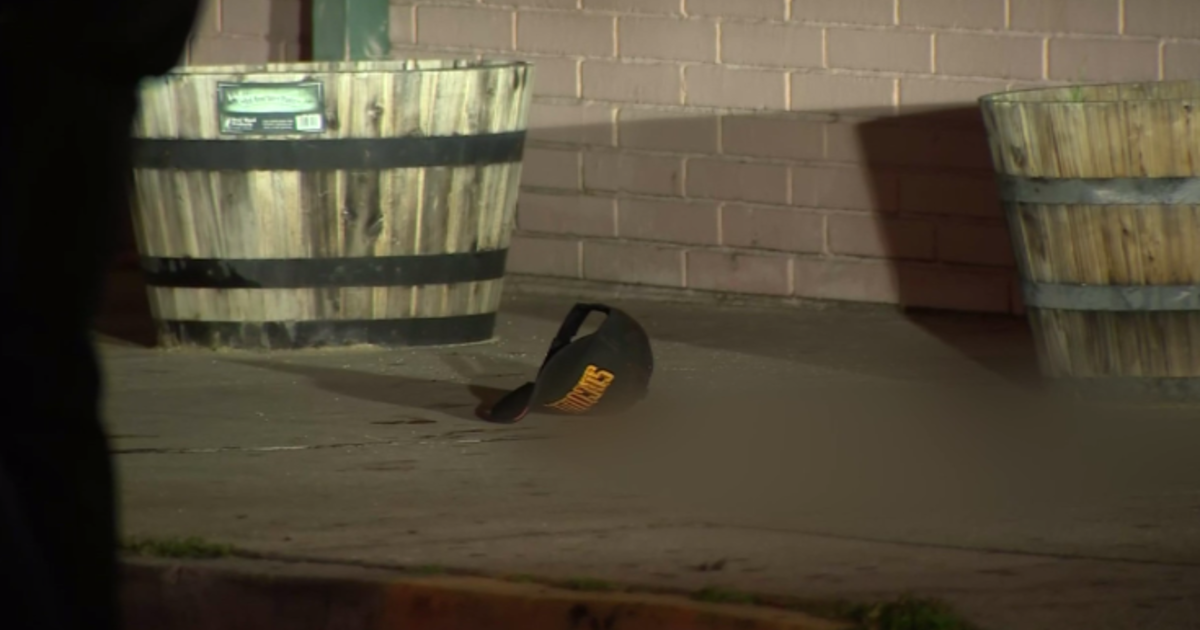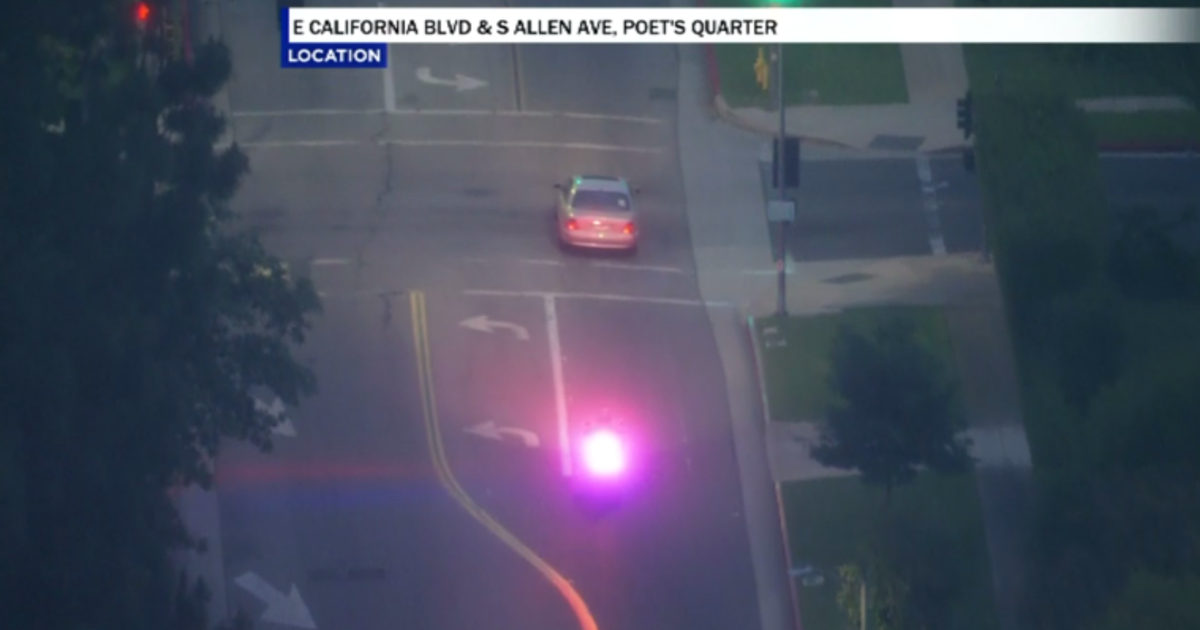LAPD Links Torrance Man To 2 Lincoln Heights Cold Case Murders Using Familial DNA
LOS ANGELES (CBSLA.com/AP) – Six years after two young women were raped, killed and their bodies dumped along freeways, Los Angeles County prosecutors have charged a man for the crimes, using a familial DNA test and secretly collecting the suspect's spit from a sidewalk.
Geovanni Borjas of Torrance was charged Tuesday with two counts each of murder and forcible rape and one count of kidnapping, Chief Charlie Beck said at a news conference.
The charges include the special circumstance allegations of multiple murders and murder during commission of a rape and a kidnapping. The charges make Borjas eligible for the death penalty.
The 32-year-old suspect was arrested last Thursday in his Torrance home in the killings of 17-year-old Michelle Lozano and 22-year-old Bree'Anna Guzman. Beck said both victims had been sexually assaulted.
He pleaded not guilty and is due back in court June 22, when a date will be set for a hearing to determine if there is enough evidence for him to stand trial. He remains jailed without bail.
Lazano was last seen alive in front of Lincoln High School on April 24, 2011. The following day, her nude body was found dumped along the Golden State (5) Freeway near State Street in Boyle Heights. The corpse was wrapped in plastic bags, put in a plastic container and dumped over a masonry barrier along the freeway, detectives said.
On Jan. 26, 2012, Guzman's partially clothed body was found near the Riverside Drive onramp to the southbound Glendale (2) Freeway in the Silver Lake area, according to police.
The mother of two had been reported missing a month earlier. She left her home in Lincoln Heights on the day after Christmas to go to a Rite Aid pharmacy in Lincoln Heights, but never returned.
"I'd like to thank the LAPD, all the efforts they did to catch this monster and get him off the street," Guzman's father, Richard Duran, said as he fought back tears.
Police later linked the murders of both women with forensic evidence.
"After the familial search, a person was identified as a contributory match to the suspect," Beck said. "That individual was suspect's father, who was arrested on a non-sexual-assault-type crime earlier in his life."
The DNA of Borjas' father was in the state's crime database. Police matched the DNA found at the crime scenes to the father's. There was no match. But it was close enough for detectives to trail his son, Geovanni Borjas, to collect his DNA without his knowledge.
"During that following, he spit on the sidewalk. Detectives collected that. The DNA was a match," the police chief said.
The victims' families, who were present at the news conference, were in tears.
According to police, prior to the murder charges, Borjas had criminal record, only a few parking tickets. So his DNA was not in any existing database prior to his arrest.
Beck said the victims did not know each other, and Borjas worked at a neighborhood pharmacy where the victims frequented.
According to Beck, the case marks only the second time police have relied on a familial DNA search, which can narrow the search for a suspect to a particular family and point detectives to suspects whose DNA is not yet in a database.
The only other case in which the LAPD used familial DNA was the Grim Sleeper serial-killer case, in which detectives used a discarded pizza crust to collect DNA linking the killings to Lonnie David Franklin Jr., who was convicted and sentenced to death in 2016.
